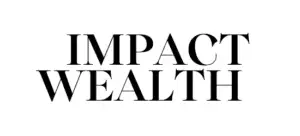Uncle Sam: Your Business Partner. Learn tax strategies for transferring wealth to descendants smoothly and efficiently. Generating substantial wealth has always been challenging, full of risk and a good measure of luck, but for the few that accomplish it, a gauntlet awaits.
The US estate tax rules exact a heavy toll when passing wealth to children and future generations. The federal estate tax is currently 40%, which is a steal considering it’s been as high as 77%. The tax applies on worldwide assets above your lifetime exemption, currently set at $12.9m+ per person. So, a married couple can pass nearly $26m without paying any federal estate tax, but that exemption is scheduled to be reduced by about half in 2026. Each additional dollar over the exemption costs 40 cents of gift and estate tax. For a family with assets of $100m, without planning roughly $30m goes to federal estate tax. And to top it off, some states have estate taxes of their own as well.
When you consider income tax, capital gains tax, and estate tax, families with significant wealth may pay as much as 70%+ of their wealth to Uncle Sam, making it your largest business partner. It is essential to have a well-thought-out plan to minimize the impact of taxes.
There are several strategies to consider, and we broadly categorize them into time-focused vs value-focused.
Time Focused Tax Strategies
Using your lifetime exemption early in your life allows family assets to grow over an extended period of time, outside your taxable estate. Typically, the assets are transferred to a protected vehicle, like a Generation Skipping Trust (GST). A GST is a specialized trust that allows you to transfer assets to your children and grandchildren, and sometimes future generations, while skipping the estate tax each time assets pass to the next generation. You not only avoid the 40% estate tax on the trust assets (no matter how much they are worth at your demise), but your children avoid estate tax when trust assets pass to their kids, and so on. When structured properly, assets held in a GST can grow estate tax-free for the benefit of many future generations.
You also have the ability to make an annual gift of up to $17,000, to as many people as you like without any gift tax ($34,000 for a married couple). Over time, these annual gifts can rack up impressively for family members using a vehicle called an annual exclusion trust or Crummey trust (after the taxpayer who first used the technique). Imagine the ability to give $34,000 for 20yrs to five kids and grandkids. That adds up to $3.4 million, without compounding or any increase in the annual exclusion. At the current 40% estate and gift tax rate, that is a tax savings of $1.36 million. In addition, you could turbo charge this technique with the purchase of a life insurance policy on yourself inside the Crummey trust. The insurance proceeds are not subject to income tax, capital gain tax, or estate tax. I’ve worked on cases where the tax adjusted death benefit can be 10 to 15x the total premiums paid. This is a technique wealthy families should consider.
Value Focused Tax Strategies
Some value focused techniques involve passing assets that are eligible for valuation discounts due to elected restrictions like lack of control and/or lack of liquidity. As an example, a $50m business held within a Family Limited Partnership (FLP) or Family Limited Liability Company (LLC) can sometimes be heavily restricted in control and liquidity. Such restrictions may drive down the value of interests in the business, and therefore lower the value for gift and estate tax purposes. Family run businesses can be particularly well suited for this technique. A patriarch or matriarch can choose to gift a portion of their business into a well-designed trust for the benefit of children and future generations. Attorneys and valuation specialists can help craft these complex structures and save a significant amount of estate tax.
Other value focused strategies reduce estate taxes by transferring out of your estate assets with a relatively low current value but high appreciation potential. A common vehicle for such a strategy is the Grantor Retained Annuity Trust (GRAT), which allows you to shift future growth of assets to your children (in trust) while retaining the original value for yourself. Success depends upon beating a government assumed rate of appreciation (4.4% as of writing this). Appreciation over that amount will pass to your children free of estate and gift tax, and the original value of the asset will be paid to you in annual installments, along with the government assumed rate of return. In a volatile market, this is perhaps the most effective tool in a family’s arsenal. If assets appreciate over the government assumed rate, the GRAT succeeds and the appreciation passes to the children; if the assets depreciation or fail to beat the rate, the GRAT technically fails, but the only consequence is that the assets are returned to you (and you can try again). We’ve recommended and administered dozens of GRATs and collectively passed hundreds of millions of dollars into trusts for the next generation. In the right hands there is effectively little downside with this technique.
Conclusion
There are many more strategies that take advantage of time and value, some that offer to ‘freeze’ an estate so all future appreciation passes to beneficiaries, and some that use specific assets like personal residences. But most all play with time or value, or both.
Using these strategies to transfer wealth effectively to future generations can be complex and challenging. It is essential to work with a team of qualified financial advisors, estate attorneys and tax planners to evaluate the extent of your tax liability, and then implement a tailored plan. An ultimately successful plan might take advantage of several techniques, as no one strategy will accomplish the whole task. But with the right team, and with consistent effort, much of the tax expense can be mitigated.
I’ve often counseled clients to differentiate between net-worth and ‘net-keep’: that it’s not what you make that matters, it’s what you keep.
Ash Chopra, CPWA, is the CEO of San Francisco, CA-based Syon Capital, LLC, a wealth management firm that advises a select number of families, executives, and entrepreneurs. The firm specializes in building thoughtfully curated and holistic financial strategies to help optimize their clients’ capital and enhance both their lives and their legacies.


















